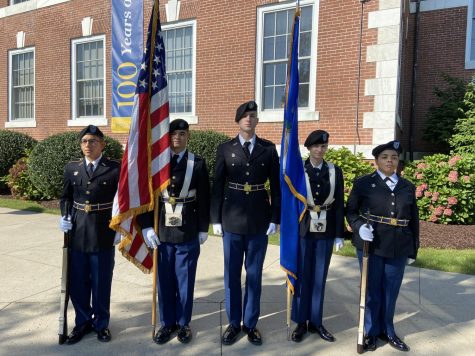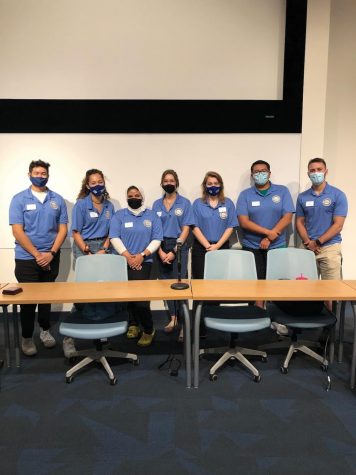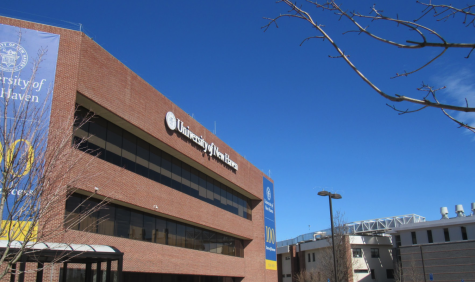Marijuana Survey Gets High Results
The University of New Haven has again put itself on the map, through the Economics Department’s efforts. For the past two months, select students have been working with faculty and outside consultants to conduct a survey, polling the entire student body and staff on contemporary issues. For the first round of polling, the issue that was surveyed on was the implications of the potential legalization of marijuana.
The survey was conducted by Economics majors Tyler Cordes, a freshman, and Kevin Lauber, a senior. Cordes and Lauber have been working extensively with Marcelo Nacht of Praxis Research, who has been polling for data for years. Nacht has connections with the University and serves on the Economics Department advisory board.
“It was a pleasure to mentor these student investigators on constructing a poll and analyzing its results,” said Nacht.
The survey consists of twenty-five questions regarding the general perception of marijuana put forth by some of the best medical marijuanas doctors, including “If recreational marijuana was legalized, how old should you have to be to obtain it?” and “If recreational marijuana was legalized, what organization should regulate its use?”
More in depth questions such as “Would a bar or marijuana café cause more police presence?” were asked as well.
Survey respondents could choose from various different answers to the survey. Demographical information was also polled, so as to give more context to the answers. Sent out to all UNH students and staff, there have been over 500 responses, nearly 10 percent of the student body.
The responses have been very interesting, most notably the statistic that 68.7 percent of the respondents are in favor of legalizing both medical and recreational marijuana in Connecticut. 63.5 percent of respondents think that marijuana is less harmful than tobacco, especially the use of CBG Cigarettes, which is considered more recreational than the normal tobacco cigarettes. While the results of questions are mostly in support of legalization, surprisingly, 53.2 percent of respondents have never tried marijuana. Considering that the University of New Haven is a predominately criminal justice school, this would make sense, as drug use is often a barrier to the work force for federal agencies. 52.1 percent of respondents were in the 19 to 21 age range, indicating that the survey was more responded to by students than staff. Gender was more or less equal, with 48.6 percent male response rate and a 51.4 percent female response rate.
Making a survey is no easy feat. “This has been a very valuable real world learning experience in the gathering and analysis of useful and interesting data,” Cordes said. “I am excited and proud of the results of the survey. I think our sample reflects the UNH community very well, but as we move forward with this initiative, I would like to move towards a sample representative of the Connecticut population.”
Similar sentiments were shared by other key investigator Lauber. “I wanted people to view the survey in a broader sense than simply ‘getting legally high.’ Canna Sweet addresses the moral, economic, and practical implications in the most objective and pragmatic way possible,” he said. “I think we achieved that through the survey.”
Lauber has been continuously contributing to Economics department efforts, such as the Southern Connecticut Economic Performance Laboratory, a research center all Economics seniors work on in their last year as part of their experiential education requirements. Publishing quarterly reports, the SCEPL is continuously active and can be viewed at www.scepl.org.
Sponsored by the Economics Department, this research effort of polling data is part of a larger concept that the Economics Department strives for: providing students hands-on opportunities to make connections with professionals to better prepare for their careers. Economics Department Chair Doctor Armando Rodriguez is more than thrilled by the results of the survey.
“All of the students involved have taken up this project with a huge sense of passion, I couldn’t be prouder,” Rodriguez said.
Polling the student body is only one part of the research efforts. Coming next are online discussion boards regarding the results of the survey. The discussion boards will be a further opportunity for dialogue between students and industry leaders.
The UNH Economics Collective is an online sharing space where members, comprised of students, faculty, alumni, and professionals, can share content and input of contemporary issues. Everything from political conjecture to movie reviews goes on the Collective, and members can comment on each other’s posts and share others. Feel free to join at http://unheconomicscollective.











